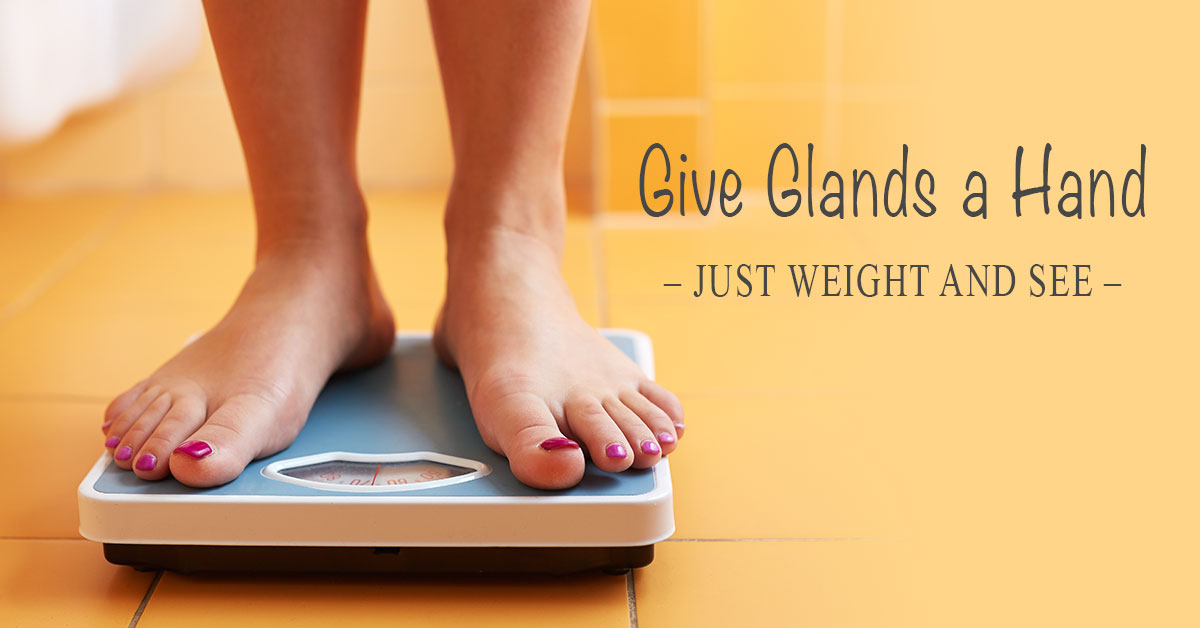JUST WEIGHT AND SEE – Put the Fork Down, Folks.

Weight is one of the most talked about topics throughout our lives. “Oh, look at that adorable chubby baby.” Then comes the “Honey Boo Boo” phase, where baby fat becomes kid fat. The kind of kid fat that get people staring and blaming “Mama June” type mothers for letting it happen and think it’s OK. There are fat camps in a fast food world of super-size everything. Weight gets really tough in teens, plummeting their self-esteem and sending them on a life of more diets than you could imagine. But as people age, unbalanced hormones can kick in that puts on weight without them really understanding why. (Answers, would be nice.)
Horror-Mones
Yep, hormones and weight gain go hand in hand. There are three of these hormones that are absolute weight gain demons. When they misfire, it leads to people hating to look in the mirror as they see their curves and toned bodies start to turn to loose lumps and bumps.
Leptin
Leptin is produced by the body’s fat cells and its primary function is to tell a part of our brain that we’re full. Our mostly disastrous diets today are saturated with a type of sugar called fructose, found in many processed foods (everything from pasta sauce to salad dressings). When too much fructose floods your body, your body stores it as fat. This leads to an excess of leptin. When your body has too much leptin it’s possible to become leptin resistant, meaning your body no longer can tell if you’re full or not—and you keep eating and gaining weight. (Disaster.)
Insulin
Insulin is a hormone created by your pancreas that helps regulate blood sugar. When your insulin gets thrown off balance, you have a harder time losing weight. In addition, if you tend to eat sugary foods throughout the day, you keep your insulin working overtime trying to clear the sugar from your blood. What does insulin do with the extra sugar? It stores it as fat. (Fat, fat, everything is fat. “Fat chance, fat as a pig, it’s not over ‘til the fat lady sings. “There’s an unsettling theme going on here.)
Cortisol
Things that cause stress in your life could leave you feeling like you’ve been hit by Thor’s hammer. Cortisol, which is known as the “stress hormone”, skyrockets in the face of all this too-much-to-take tension. And stress, can turn overeating into a habit. It gets worse; because increased levels of the hormone also help cause higher insulin levels, your blood sugar drops and you crave sugary, fatty foods. Bye-bye bananas and salads, hello Big Macs, and mac and cheese. Which, when you think about their weight-gain damage, hardly makes them “comfort foods”.
Getting It Right
When your hormones end up a terror of imbalance it’s going to affect your weight. (And with age, there’s a good chance it will get worse.) No matter what you try to try and lose those lbs., nothing seems to help. Well, the first step to that end, is to balance your hormones. That’s where the expertise and experience of Dr. Stephen A. Goldstein at Denver Hormone Health comes in. Unlike some other doctors, he looks at your body as a whole, and treats it that way. Balancing your hormones is just the beginning of addressing your weight issues. That’s why he has created a unique hormonal weight loss support system designed to help guide you down that yellow brick weight-loss road. The program combines targeted health-boosting supplements, along with access to the combined resources of both an accomplished nutritionist and personal trainer, working hand in hand to help make your objectives, reality. (Don’t toss those clingy clothes, yet.)
Give us a call to find out more.
Start now and start losing.


